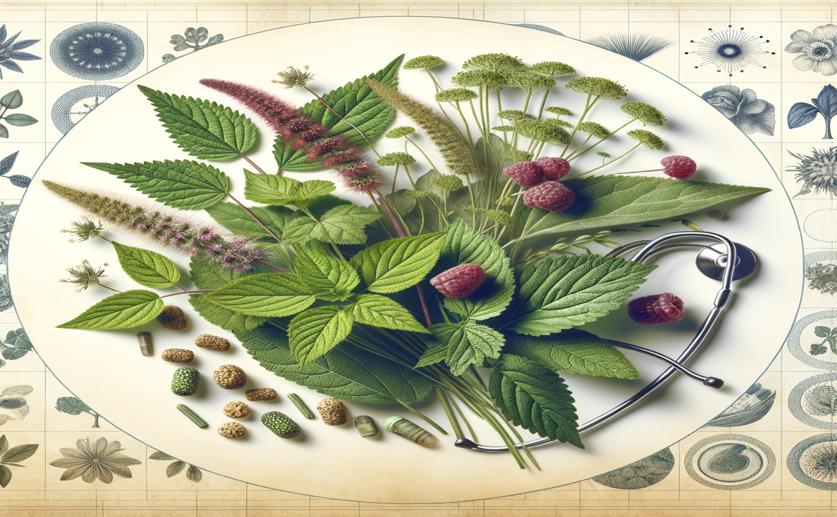- EARTH TO AILMENT
- Posts
- EARTH TO AILMENT #13
EARTH TO AILMENT #13
Earth to Ailment: Unveiling Nature's Remedies - Harness the Power of Earth's Bounty for Holistic Health



This article highlights the health benefits found in ordinary fruits that are often overlooked in favor of more exotic "superfruits." While fruits like guava, mangosteen, acai, and goji berries are often praised for their high antioxidant levels, research has shown that common fruits like apples, grapes, and blueberries also offer impressive health benefits.
Even small increases in fruit consumption can reduce the risk of developing type 2 diabetes, while apples have been found to lower LDL cholesterol and raise HDL cholesterol levels. In addition to the health benefits, ordinary fruits are more accessible, making it easier to incorporate them into daily diets.
They can be enjoyed on their own or used in various recipes, making them a versatile and nutritious option for all consumers.


Researchers from Huazhong Agricultural University and the Hubei Jiangxia Laboratory have published a comprehensive review of traditional Chinese medicine (TCM) in the prevention and control of African Swine Fever (ASF). The study highlights the antiviral and immunoregulatory capabilities of herbal compounds in TCM.
The review showcases various herbal extracts that have demonstrated the ability to inhibit ASFV proliferation and suppress the virus's replication cycle. TCM also plays a role in enhancing immune responses and potentially reducing the severity of ASF.
The integration of TCM with modern scientific methods presents a robust strategy in the fight against ASF. The findings suggest that incorporating TCM into pig farming practices could significantly boost disease prevention and control measures.
Moreover, this research could contribute to a deeper understanding of TCM mechanisms and its integration with Western medicine, benefitting global health strategies against ASF and other infectious diseases.

In rural Uganda, pregnant women heavily rely on traditional herbal remedies for postpartum care and uterine health. A recent study conducted by Makerere University found that 104 plant species are used for maternal health, with oral administration being the most common method.
However, the use of these plants poses risks due to unspecified dosages and potential toxicity, highlighting the need for further research and integration into formal healthcare systems. The study sheds light on the extensive use of traditional medicine in Uganda and its implications for maternal health.
While the use of herbal remedies provides opportunities for managing labor and postpartum complications, the unknown dosages and potential toxicity present significant risks. The study calls for the integration of herbal medicine into healthcare systems and the involvement of community stakeholders to enhance maternal health services in Uganda.
By reevaluating gendered health provision policies and addressing the high rates of population growth, fertility, maternal mortality, and morbidity, Uganda can work towards improving maternal health outcomes.


The Center for Integrated Medicine is celebrating its 30th anniversary, and Dr. Kar May Kwong is reflecting on the ancient Chinese medicines her father used to prescribe.
She found deer antler velvet and other natural herbs and medicines in her father's collection. Chinese medicine, which is over 3,000 years old, is holistic and treats the entire body.
Acupuncture is used as a last resort in China, and instead, herbs, nutrition, cupping, scraping, massage, and movement exercises are utilized. Kwong's Center for Integrated Medicine is now the largest independent full-service Traditional Chinese Medicine practice in the South Valley.
The center also has a natural medicine pharmacy on site and holds workshops on natural ways to lower blood pressure and other health concerns. On June 29, the center will be hosting an anniversary open house with workshops and demonstrations.


The global essential oils market has experienced significant growth over the past decade, driven by increasing consumer interest in natural health products. The market is projected to reach USD 20 billion by 2028, growing at a compound annual growth rate of 6.
3%. Aromatherapy, the use of essential oils for therapeutic benefits, has gained widespread popularity, fueled by the growing preference for natural remedies.
Essential oils are also widely used in personal care, cosmetics, food and beverage, and household cleaning products. The demand for natural and organic products, along with the emphasis on sustainability and ethical sourcing, has contributed to the growth of the market.
Despite challenges such as raw material price volatility and regulatory requirements, there are numerous opportunities for growth, including innovation in extraction and production, expanding applications, increased consumer education, and e-commerce. The future of the essential oils market looks promising, with continuous innovation and expanding applications driving further growth.

The concept of "food as medicine" is gaining traction, as research has shown that eating more fruits and vegetables can lower the risk of diet-related diseases. However, many Americans struggle with accessing healthy food, especially those who face food insecurity.
To address this issue, initiatives like the Gus Schumacher Nutrition Incentive Program (GusNIP) are providing funding for nutrition incentive and produce prescription programs, allowing more communities to tap into the food-as-medicine movement. These programs provide vouchers for eligible patients to purchase fruits and vegetables, helping them incorporate healthy options into their diet.
Additionally, nutrition incentive programs like Double Up Food Bucks are making major strides in improving access to healthy food and reducing the risk of diet-related diseases for those using food stamps. These initiatives have been successful in increasing fruit and vegetable consumption, improving food security, and reducing healthcare costs.
By expanding and improving these programs, Congress has the power to help more families lead healthier lives and make significant progress in preventing diet-related diseases.

Fungal infections in babies are common, but there are several effective treatments and preventative measures that can be taken. Fungal infections are more prevalent in infants due to their underdeveloped immune systems, but with proper care and attention, these infections can be managed.
Some common types of fungal infections in babies include ringworm, thrush, and diaper rash. These infections can be caused by factors such as malnourishment, a warm or humid climate, and close proximity to animals.
Treatment options for fungal infections in babies include topical antifungal agents, such as creams or oral medications, as prescribed by a doctor. Some home remedies may also provide relief, such as using tea tree oil or aloe vera.
Preventative measures include keeping the baby and their surroundings clean, changing diapers frequently, and using breathable disposable diapers. Overall, with proper care and treatment, fungal infections in babies can be effectively managed.


A new study led by the University of Oxford has found that wild chimpanzees seek out medicinal plants to treat their ailments. The researchers combined behavioral observations of wild chimpanzees with pharmacological testing of the plants they eat.
They collected plant extracts from 13 species in the Budongo Central Forest Reserve in Uganda that they suspected the chimpanzees might be using to self-medicate. The extracts were then tested for their anti-inflammatory and antibiotic properties.
The results showed that the chimpanzees consumed plants with medicinal properties to treat illnesses and injuries. Dead wood from the Alstonia boonei tree, for example, exhibited antibacterial and anti-inflammatory properties and is also used as a medicinal plant in East African communities.
The study highlights the potential for discovering valuable new drugs from medicinal plants and underscores the need to protect these forest ecosystems.

This article provides nine natural ways to relieve seasonal allergy symptoms. It emphasizes that there are alternatives to traditional allergy medications like Claritin and Allegra that may lose their effectiveness over time.
The article suggests using a neti pot to clear out sinuses, consuming probiotics to boost immune health, taking quercetin supplements to reduce allergy symptoms, drinking stinging nettle leaf tea for its anti-inflammatory properties, incorporating walnuts and flaxseed into the diet for their omega-3 fatty acids, using oily steam with herbal oils to relieve congestion, trying acupuncture to alleviate itchy eyes and stuffed nose, using a humidifier to add moisture to dry homes, and installing an air purifier with a high-efficiency particulate air filter to remove allergens from the air. Overall, the article takes an optimistic tone by highlighting natural remedies that can help individuals enjoy the springtime air without suffering from seasonal allergies.

This article discusses 10 foods that are scientifically proven to help fight stress. It explains that certain nutrients found in foods can help fend off stress and that the causal relationship between diet and mental health conditions like depression is difficult to definitively identify, but some research suggests diet can affect mental health.
Some of the foods mentioned in the article include herbal tea, dark chocolate, whole grains, avocados, fish, warm milk, nuts, citrus fruits and strawberries, probiotics, and foods high in fiber. The article explains the specific benefits of each food and recommends incorporating them into your diet to help reduce stress levels.
Overall, the article takes an optimistic tone by emphasizing the positive impact that food can have on stress levels and mental health.

Sulforaphane, a compound found in cruciferous vegetables like broccoli, cabbage, and Brussels sprouts, has a range of potential health benefits. While more research is needed, preliminary studies suggest that sulforaphane may protect against cancer, regulate blood sugar, reduce inflammation, enhance the immune system, and have neuroprotective effects.
For individuals with type 2 diabetes, taking sulforaphane supplements in the form of concentrated broccoli sprout extract has shown promising results in improving insulin sensitivity and reducing blood sugar levels. Additionally, sulforaphane may have anti-cancer properties, particularly in the treatment of prostate, breast, and pancreatic cancer.
While consuming sulforaphane through a balanced diet is preferable, supplements can be considered if incorporating enough cruciferous vegetables into the diet is challenging. However, it's important to consult a healthcare provider before taking supplements, especially for individuals on certain medications.
Cooking cruciferous vegetables can reduce the amount of sulforaphane, so it's best to consume them raw or lightly steamed to maximize their sulforaphane content.

